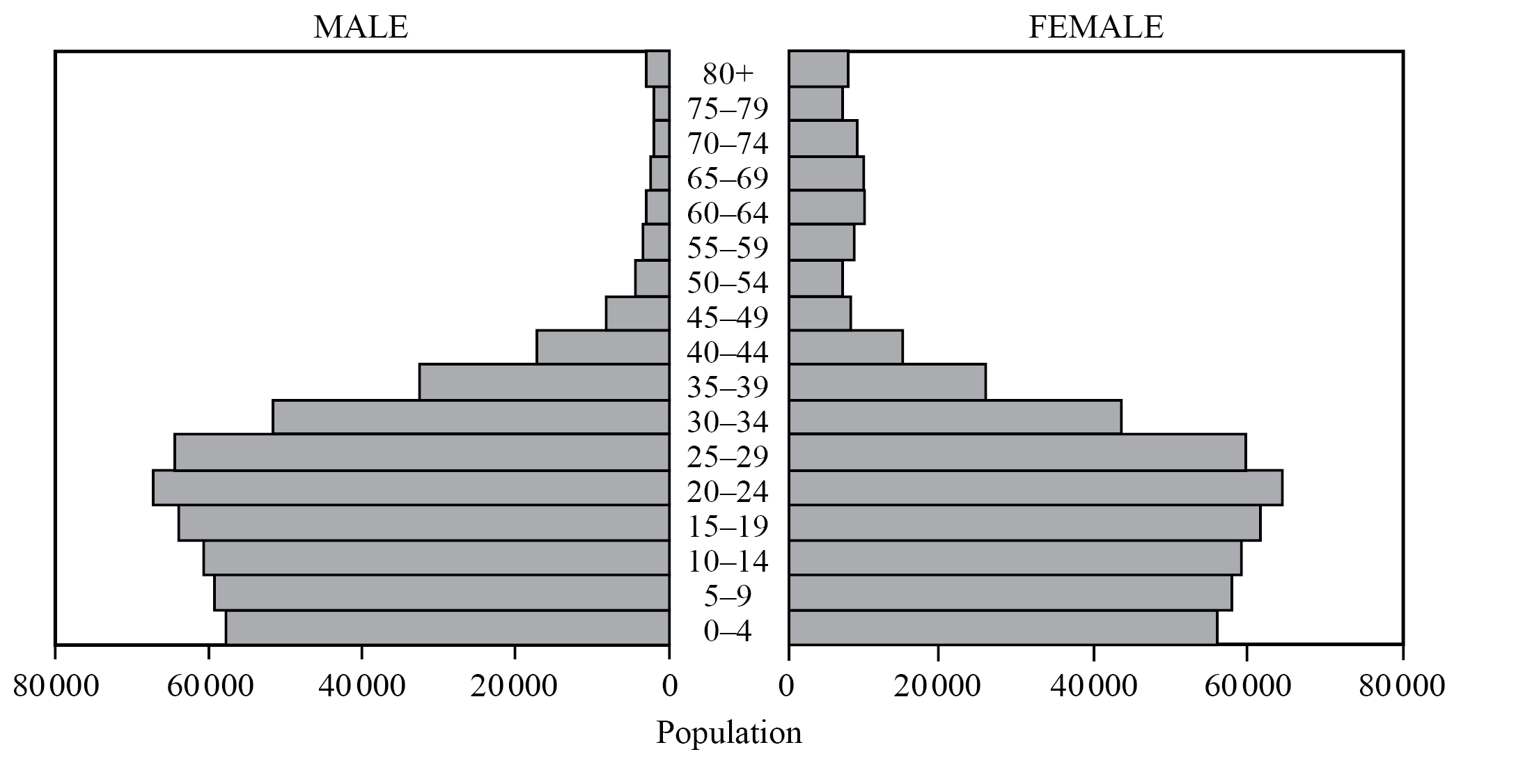| Date | November 2011 | Marks available | 2 | Reference code | 11N.1.bp.1 |
| Level | SL and HL | Paper | 1 | Time zone | |
| Command term | Distinguish | Question number | 1 | Adapted from | N/A |
Question
The graph shows the predicted population pyramid for a country in 2025.
[Source: adapted from U.S. Census Bureau, International Data Base]
Describe the predicted population structure of this country in 2025.
Distinguish between a population projection and population momentum.
Explain the economic impacts of an ageing population on a named country.
Markscheme
The pyramid exhibits a broad base/youthful structure [1 mark]. Concave shape/rapidly tapering/chimney effect [1 mark]. A further 1 mark for quantification or further observation, for example, a comment on the uneven sex ratio/identification of a high (youthful) dependency ratio.
Do not credit explanatory answers.
Population projection is an estimate/prediction of a future population [1 mark].
Population momentum refers to population growth/decline which continues despite fertility rates falling/increasing [1 mark].
A valid country should be chosen as an example [1 mark].
Award 1+1 marks for each valid economic impact, provided that it is developed by means of explanation or detail.
Possible impacts could be: increased dependency ratio; potential shortage of labour; reduced revenue from taxation; reduced savings/investment; increased demand on state pensions; increased demand on services/welfare for the elderly; increased insurance premiums; lower economic growth; introduction of mandatory pension schemes; issues of younger family members having to care for the elderly.
Examiners report
Most could see that this is a rapidly tapering, youthful population but a surprising number of candidates explained instead of described, and/or did not recognize the chimney effect and instead referred to this pyramid as having a large economically active population, which is definitely does not.
On the whole well answered but with the weaker answers not understanding momentum.
Some excellent responses, using Japan, Australia, China, and the UK as examples. On rare occasions examples were not well chosen and this impacted upon the quality of the response. Some candidates drifted away from economic consequences.

